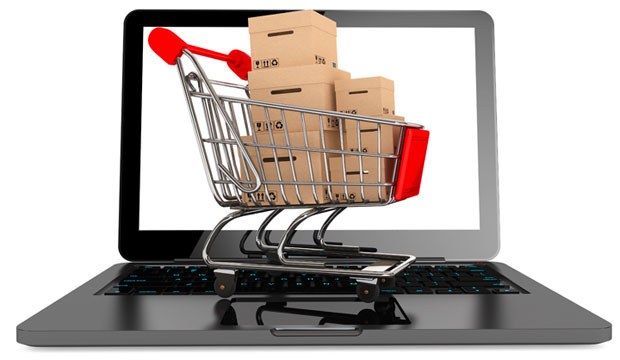Shipping has become a key part of success in the online shopping revolution. Amazon has raised consumer expectations dramatically when it comes to shipping, and etailers have been scrambling to keep up.
Because changes occur on a near-daily basis in the world of fulfillment and shipping, here are some tips for getting ahead of the game.
1. Offer Speedy Delivery
The faster you can get your goods out the door and into your customers’ hands, the better. Consumers increasingly expect their purchases to arrive quickly, and they’re drawn to two-day, next-day and even same-day shipping offers.
“Right now, Amazon has set the bar with same-day shipping, whether retailers like it or not,” said Greg Ng, VP of digital engagement at PointSource.
“Expectations for shipping speed are rapidly changing, and retailers may need to make updates to their digital experience and backend supply chain so that they can keep up,” he told the E-Commerce Times. “That may mean working with third-party suppliers, distributors and technologies that can ensure a more accurate, seamless and speedy delivery process.”
Offering speedy shipping options — especially if they’re free or low-cost — is where the world of e-commerce is headed, and the sooner online merchants can adapt to this reality, the better.
“While the future of shipping is uncertain, it’s obvious that higher expectations and faster delivery are here to stay,” said Ng.
2. Ship From or To Your Store
For e-commerce businesses that also have a brick-and-mortar presence, shipping from or to the store can be appealing to consumers.
“With consumers turning to both offline and online commerce touchpoints, each channel must be relevant in unique ways to shoppers, and shipping is a huge part of that,” said Ng. “Allowing same-day or next day shipping after buying in store — or vice versa, buy online and pick up at store — is one way that we are seeing retailers update their options.”
Offering these kinds of options isn’t necessarily a simple matter, since it involves making sure that your products are available to ship according to the timeline provided to the customer, either in the store or online.
“This requires better logistics and supply chain data, but ultimately it could provide more value to the customer by giving them a consistent experience no matter where they shop, allowing them to make purchases in ways that are convenient to them without extra fees,” explained Ng.
3. Get Outside Help
Outsourcing shipping-related tasks might seem unnecessary, particularly for e-commerce retailers just starting out. Making use of the services of companies that assist in shipping, however, can be a lifesaver, since the complex, demanding, and ever-changing world of shipping is often best navigated by professionals.
Let’s face it: If you get help with shipping, you’ll free up time to make or source your products, market your business and find new customers.
“By simplifying the shipping process, e-commerce retailers can concentrate on what they love most — building their business,” said Katie May, CEO of ShippingEasy.
With a shipping service, online merchants can get the help of a dedicated support team, along with discounted shipping rates, instant label printing, and other benefits.
“If a customer is an experienced shipper with a warehouse and thousands of packages to get out the door, ShippingEasy provides full automation across everywhere they sell and every shipping carrier,” May told the E-Commerce Times.
Getting help with shipping is, most importantly, a time-saver.
“When you don’t waste hours each day copying and pasting addresses and tracking numbers, or shipping orders one by one, you can spend a lot more time developing new products and getting the word out about your brand,” said Cody DeArmond, manager of user acquisition for ShipStation.
“Putting a scalable, automated process in early means that your success isn’t dependent on one person who holds all the shipping knowledge,” he told the E-Commerce Times, “and that you will be ready for any amount of orders that come in.”
























































These are excellent ideas. Ship from and to your storeis a great way to take advantage of assets that Amazon and other pure-play ecommerce sites don’t have — stores (except for grocery for Amazon).
Buy Online, pickup in store:
Shoppers purchase online, and can pickup at a local retail location.
* Shoppers win, with immediate gratification and zero shipping costs
* Retailers win, gaining an online sale that others cannot while eliminating shipping costs
* Retailers also win a 20% increase in sales, on average, from customers purchasing additional items while in the store
Ship from Store:
Retailers can, when it suits their needs, ship from a store instead of from the fulfillment center.
* Ship from stores with overstocked items to increase inventory turns
* Ship from stores when the fulfillment centers are low or out of stock, to increase revenue
* Ship from the store closest to the customer, to deliver faster and save on shipping expenses
The challenge: In both cases the ecommerce platform must have real-time access to order and inventory levels across the entire enterprise, including all stores and fulfillment centers.
The solution: Fortunately, today, even mid-market merchants have access to SaaS Order and Inventory Management platforms that enable these capabilities.
Manish Chowdhary, CEO, https://www.pulse-commerce.com